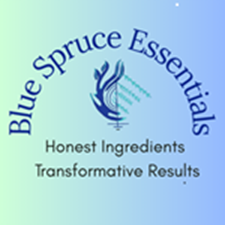
Is Coffee Bad for Your Skin After 40? Science-Backed Risks & Benefits
Share
Is Coffee Bad for Your Skin After 40? Science-Backed Risks & Benefits
Morning coffee ritual pretty much kicks things off for most people. But hit your 40s or beyond, and things shift under the surface. Skin starts losing elasticity naturally at a faster rate these days. Hydration dips, collagen production slows down hard, too. You might wonder whether your coffee habit is helping or hurting your skin.
The truth is nuanced: moderate coffee consumption can protect the skin through antioxidants and improved circulation. Better blood flow from caffeine could do some heavy lifting, too, if you don’t overdo it.
Let’s break down the science of how coffee affects skin health after 40.
Why Skin Changes After 40
By your 40s, several biological changes accelerate skin aging:
- Collagen decline: Collagen production decreases by ~1% each year, reducing firmness and elasticity
- Thinner epidermis: Skin becomes more fragile and prone to wrinkles
- Dehydration risk: The skin’s ability to retain water declines, making it more vulnerable to dryness
- Oxidative stress: Accumulated exposure to UV rays, pollution, and stress increases free radical damage to collagen and elastin
This is why lifestyle choices, including coffee consumption, become increasingly relevant to skin health.
Risks of Excess Coffee for Aging Skin
1. Coffee and Dehydration: Why Your Skin Feels Dull
Water retention gets trickier as skin gets thinner over time. Caffeine’s diuretic effect hits different now compared to your 20s. While moderate consumption doesn’t cause severe dehydration, overconsumption without balancing water intake can leave skin looking parched and accentuate fine lines. Hot tip: Chase each espresso shot with equal water volume.
Our Barrier Boost Cream, with 4% niacinamide, honey, and lipid-generating cold-pressed oils like rice bran and almond, helps replenish hydration and restore barrier function—exactly what skin needs if coffee is leaving it parched.
👉 Fact: A 2021 review in Nutrients confirmed that dehydration increases transepidermal water loss (TEWL), worsening barrier dysfunction in mature skin PMC
2. Caffeine, Cortisol, & Breakouts(Acne/Rosacea Connection)
Caffeine can raise cortisol, the stress hormone. Chronically elevated cortisol stimulates sebum production, potentially worsening acne, rosacea, and inflammation Continental Hospitals
👉 Science insight: High cortisol levels are also linked to accelerated collagen degradation via activation of matrix metalloproteinases (MMPs), enzymes that break down collagen fibers Kosmoderma
Anti-inflammatory botanicals like green tea extract (EGCG) and babchi oil in our formulations calm irritation and support balanced skin.
3. Does Coffee Cause Wrinkles? The Collagen Loss Link
Drinking way too much coffee could mess with your skin's collagen production. Research shows that going overboard on caffeine amps up oxidative stress. It also messes with fibroblasts, those cells that build collagen in your skin.
As collagen decreases, wrinkles deepen, and skin loses firmness.
Peptides in our Barrier Boost work at a cellular level to support collagen synthesis, helping skin bounce back.
4. Sleep Disruption and Skin Repair After 40
Your skin undergoes vital repair during deep sleep, producing growth hormone and collagen. Caffeine has a half-life of ~5–6 hours, meaning late-day coffee can impair restorative sleep. Chronic sleep deprivation is linked with under-eye circles, dull skin, and slower wound healing. Healthline
Nightly use of Kojic Kiss Cream (with kojic acid, niacinamide, rosehip oil, and antioxidants) helps counter uneven tone and restore overnight radiance, even if your sleep schedule isn’t perfect.
Benefits of Coffee for Skin After 40
Coffee gets a bad rap sometimes but here's the thing. It actually has legit science showing some solid benefits for your body.
1. Antioxidants in Coffee – Fighting Free Radicals & Wrinkles
Coffee is one of the richest sources of dietary polyphenols, especially chlorogenic acids. These antioxidants neutralize free radicals, protecting collagen and elastin from oxidative stress.
👉 Study highlight: A 2024 study in Journal of Cosmetic Dermatology linked higher coffee consumption with reduced facial skin aging in women over 40, crediting polyphenols for slowing wrinkle development PubMed.
2. Coffee and Circulation – The Glow Effect
Caffeine improves blood flow by dilating blood vessels. Better circulation nourishes skin cells with oxygen and nutrients, giving a temporary plumpness and radiance.
3. Coffee in Skincare – Exfoliation & Topical Benefits
When applied externally (in scrubs or masks), coffee grounds gently exfoliate dead skin cells, brightening the complexion. Caffeine in creams can also constrict blood vessels, reducing puffiness and under-eye bags.
Scientific Evidence on Coffee & Skin Health
The key takeaway here? Both internal intake and surface-level application do different things for your skin’s appearance. Not exactly magic, but science-backed enough to consider trying if circulation or puffiness bothers you regularly.
- Observational studies: Moderate coffee intake (3–5 cups/day) is associated with lower risk of skin photoaging and wrinkles, likely due to antioxidants
- Genetic studies: Coffee’s polyphenols may directly protect against oxidative stress, preserving collagen integrity
- Dermatology insights: Experts caution that individual responses vary—sensitive skin types or those prone to insomnia may need to limit intake
Practical Tips for Coffee Lovers Over 40
✅ Moderation is key: Stick to 1–3 cups daily for skin benefits without overloading on caffeine.
💧 Hydrate smartly: Drink at least one glass of water with each cup of coffee.
🚫 Skip sugar & dairy: Both can worsen acne and glycation (sugar attaching to collagen, making it stiff and wrinkled).
🌙 Time it right: Have coffee before 2 p.m. to avoid sleep disruption.
🥗 Pair with nutrition: Antioxidant-rich foods (berries, green tea, dark chocolate) enhance coffee’s skin-protective effects.
🧴 Support with skincare: Look for products with niacinamide, peptides, honey, and cold-pressed oils (like rice bran, rosehip, babchi, almond, jojoba) to offset dryness and boost barrier repair.
FAQs
1. Is drinking coffee bad for your skin whitening?
Coffee does not directly darken or whiten the skin. However, excessive caffeine may cause dehydration and dullness, making skin appear less bright. On the other hand, coffee’s antioxidants help protect against free radicals, supporting an even tone and glow. If brightening is your goal, combine moderate coffee intake with topical actives like niacinamide and kojic acid found in Blue Spruce Essentials Kojic Kiss Cream to maintain radiance.
2. Does drinking coffee increase melanin?
There is no scientific evidence that coffee directly increases melanin production in the skin. Melanin is primarily influenced by genetics, hormones, and UV exposure. However, dehydration from excess coffee can make skin look dull, which some may interpret as darkening. To maintain brightness, balance coffee with hydration and use antioxidants + brightening actives like kojic acid, niacinamide, and rosehip oil.
3. How to use coffee for skin whitening?
Coffee scrubs and masks are popular in DIY skincare. When used topically, ground coffee can exfoliate dead cells, improve circulation, and give skin a temporary glow. However, coffee alone cannot lighten pigmentation or deeply brighten skin. For long-term results, dermatologists recommend proven actives like kojic acid and niacinamide. That’s why Kojic Kiss Cream by Blue Spruce Essentials combines these brightening actives with antioxidants and cold-pressed oils, offering safer and more effective results than DIY coffee remedies.
4. Is coffee bad for your skin after 40?
Moderate coffee consumption is not inherently bad for skin after 40. Coffee’s antioxidants may protect collagen and fight free radical damage. However, excessive intake can worsen dryness, wrinkles, and inflammation, especially if hydration and skincare aren’t balanced.
5. Does coffee cause wrinkles?
Excess caffeine may accelerate collagen breakdown and make wrinkles more visible. Studies show that moderation (3–5 cups daily) is unlikely to harm skin, and may even slow aging due to antioxidants.
6. Can coffee dehydrate my skin?
Yes, coffee is mildly diuretic and can contribute to dehydration. Mature skin is already prone to dryness, so balancing coffee with water and barrier-repair skincare is essential. Blue Spruce Essentials Barrier Boost Cream with niacinamide, honey, and cold-pressed oils is designed to restore hydration and strengthen the skin barrier.
7. What are the skin benefits of coffee?
Coffee is rich in polyphenols and antioxidants that protect skin from oxidative stress. It also boosts circulation, giving a temporary glow, and can be used topically for exfoliation.
8. How can I protect my skin if I drink coffee daily?
Stay hydrated, avoid sugary add-ins, and use pro-aging skincare with niacinamide, peptides, and cold-pressed oils, like Blue Spruce Essentials Barrier Boost and Kojic Kiss to replenish hydration, brighten skin tone, and support collagen.
